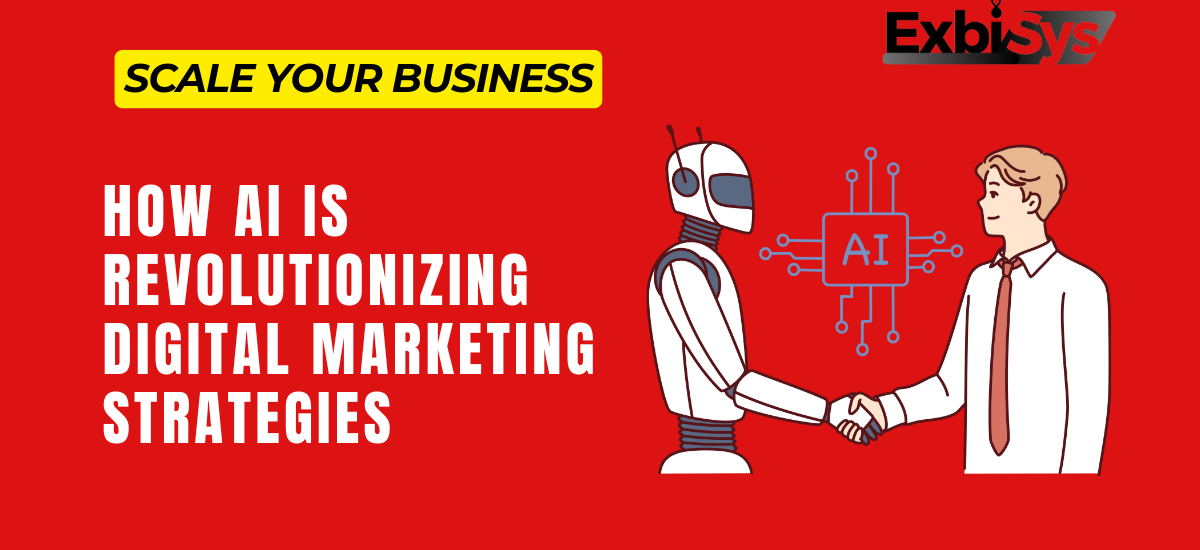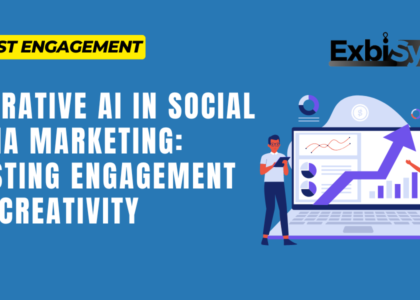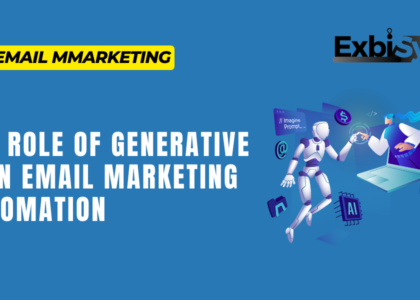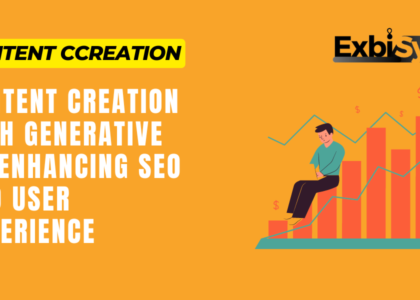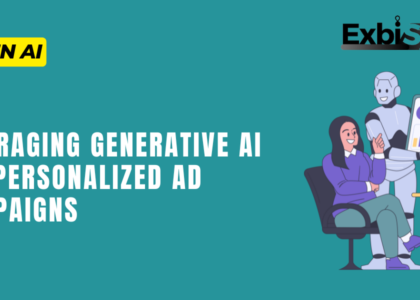In recent years, Artificial Intelligence (AI) has emerged as a powerful tool in transforming digital marketing strategies across industries. AI enables marketers to analyze large volumes of data, automate tasks, personalize customer experiences, and optimize campaigns in ways that were previously unimaginable. By leveraging AI technologies, businesses can stay ahead of their competitors, delivering more relevant and timely marketing messages that resonate with their audience. Let’s explore in detail how AI is reshaping the digital marketing landscape.
1. AI-Driven Personalization: Creating Tailored Customer Experiences
One of the most significant impacts of AI in digital marketing is its ability to drive personalized experiences at scale. Today’s consumers expect brands to understand their preferences and deliver content that resonates with them individually. AI helps in achieving this through advanced data analytics and machine learning algorithms.
- Customer Segmentation: AI can analyze a massive amount of customer data, such as demographics, behavior, purchasing history, and online interactions, to create detailed customer segments. Traditional segmentation methods are often too broad, but AI allows for micro-segmentation, enabling marketers to target groups of customers with highly specific interests.
- Dynamic Content Creation: With AI-powered content personalization, marketers can automatically generate dynamic content tailored to individual users. For instance, an e-commerce site can display personalized product recommendations to each visitor based on their browsing history, preferences, and purchasing patterns. This level of customization enhances the user experience and increases conversion rates.
- Predictive Analytics for Personalization: AI-powered predictive analytics allows marketers to forecast customer behavior. By analyzing past interactions and patterns, AI can predict what products or services a customer is likely to be interested in, and deliver personalized recommendations accordingly. This not only improves customer satisfaction but also drives repeat purchases.
2. Enhancing Customer Journey with AI Chatbots and Virtual Assistants
AI chatbots and virtual assistants have significantly improved customer service and interaction, offering real-time support and engagement. This revolution is particularly beneficial for businesses that need to provide 24/7 customer service without human intervention.
- Round-the-Clock Availability: AI-powered chatbots can handle customer queries at any time of day, providing instant responses. Whether it’s answering frequently asked questions or helping users navigate a website, chatbots ensure that customers receive prompt assistance, reducing wait times and enhancing satisfaction.
- Improved Customer Interaction: AI chatbots can engage in meaningful conversations with users, using natural language processing (NLP) to understand and respond to complex queries. As AI systems become more sophisticated, chatbots are able to simulate human-like interactions, providing a more personalized and responsive customer experience.
- Lead Generation and Qualification: AI chatbots can serve as effective tools for lead generation. They can initiate conversations with website visitors, qualify leads by asking relevant questions, and collect contact information for sales teams. This level of automation allows businesses to engage potential customers while freeing up human resources for more complex tasks.
3. AI-Powered Predictive Analytics: Making Data-Driven Decisions
Data is a cornerstone of digital marketing, and AI has transformed how marketers interpret and use that data to make informed decisions. AI-powered predictive analytics can uncover hidden patterns in customer behavior, enabling businesses to anticipate trends and adjust their strategies accordingly.
- Customer Lifetime Value (CLV) Prediction: AI can analyze past purchasing behavior and predict the future value of customers, allowing businesses to focus their efforts on high-value customers who are likely to drive long-term revenue. By identifying these key customers, marketers can allocate resources more effectively and develop retention strategies to keep them engaged.
- Churn Prediction: Predictive analytics can help businesses identify customers who are at risk of leaving. By analyzing factors such as declining engagement or reduced purchasing activity, AI can provide early warnings, enabling marketers to take preemptive actions, such as offering special promotions or personalized incentives, to retain at-risk customers.
- Campaign Optimization: AI-powered tools can monitor the performance of marketing campaigns in real time and automatically make adjustments to improve results. Whether it’s fine-tuning ad targeting, optimizing bidding strategies, or reallocating budget across channels, AI ensures that marketing efforts are continuously optimized for maximum ROI.
4. Automating Digital Marketing: AI-Driven Efficiency and Productivity
Automation is a major benefit that AI brings to digital marketing. By automating repetitive tasks, AI allows marketers to focus on more strategic and creative aspects of their campaigns.
- Automated Content Creation and Curation: AI tools can generate content such as product descriptions, blog posts, and social media updates. For instance, tools like GPT-3 (Generative Pre-trained Transformer) can write human-like text based on simple prompts. AI can also curate content by selecting articles, videos, or other media that are relevant to a brand’s audience and automatically sharing them on social media platforms.
- Email Marketing Automation: AI can take email marketing to the next level by automating the entire process, from audience segmentation to content creation and delivery. AI can determine the best time to send emails, personalize the content based on user behavior, and even predict which subject lines will lead to higher open rates.
- Ad Campaign Management: AI can streamline the management of digital advertising campaigns by automating bid adjustments, audience targeting, and creative optimization. For instance, AI-driven platforms can monitor how different audience segments are responding to ads in real time and adjust bids and targeting parameters to maximize performance.
5. AI for Enhanced Customer Insights and Behavioral Tracking
AI has the capability to track and analyze vast amounts of customer data, providing marketers with deeper insights into their audience’s behavior and preferences.
- Real-Time Customer Insights: AI tools can process data in real time, allowing businesses to respond instantly to changes in customer behavior. For example, AI can detect a surge in traffic to a particular product page and recommend adjustments to inventory or marketing strategies to capitalize on the increased interest.
- Behavioral Analytics: AI-powered tools can track how users interact with a website, analyzing click patterns, scrolling behavior, and time spent on various pages. These insights help businesses understand what aspects of their site are most engaging and identify potential friction points in the customer journey.
- Sentiment Analysis: AI can analyze social media posts, customer reviews, and other forms of user-generated content to gauge public sentiment about a brand or product. This allows marketers to track how their brand is perceived and respond proactively to both positive and negative feedback.
6. AI in Programmatic Advertising: Precision Targeting and Cost Efficiency
Programmatic advertising has been revolutionized by AI, allowing businesses to purchase digital ad space more efficiently and target audiences with greater precision.
- Real-Time Bidding (RTB): AI-driven programmatic advertising platforms use real-time bidding to automatically purchase ad space based on predefined criteria. AI ensures that ads are shown to the most relevant audience segments, optimizing ad spend and minimizing wasted impressions.
- Audience Targeting and Retargeting: AI enhances audience targeting by analyzing user behavior, demographics, and browsing history to deliver personalized ads to the right people. Additionally, AI-powered retargeting ensures that users who have interacted with a brand but did not convert are re-engaged with relevant ads to encourage them to complete their purchase.
- Cost Optimization: AI tools continuously analyze ad performance and adjust bidding strategies to ensure the most cost-effective placements. This helps businesses achieve better ROI on their ad spend by ensuring that they are paying the right price for the right audience.
Conclusion: Embracing AI for the Future of Digital Marketing
AI is not just a trend in digital marketing; it is a transformative force that is reshaping the industry in profound ways. From personalized experiences and automation to advanced analytics and programmatic advertising, AI empowers businesses to operate more efficiently, engage with customers more effectively, and drive better results. As AI continues to evolve, it will become an indispensable tool for marketers, enabling them to unlock new levels of growth and innovation.
For businesses looking to stay ahead in the digital marketing landscape, embracing AI-driven strategies is no longer optional—it is essential. At Exbisys, we specialize in leveraging AI to optimize digital marketing campaigns, deliver personalized customer experiences, and drive long-term business growth.

